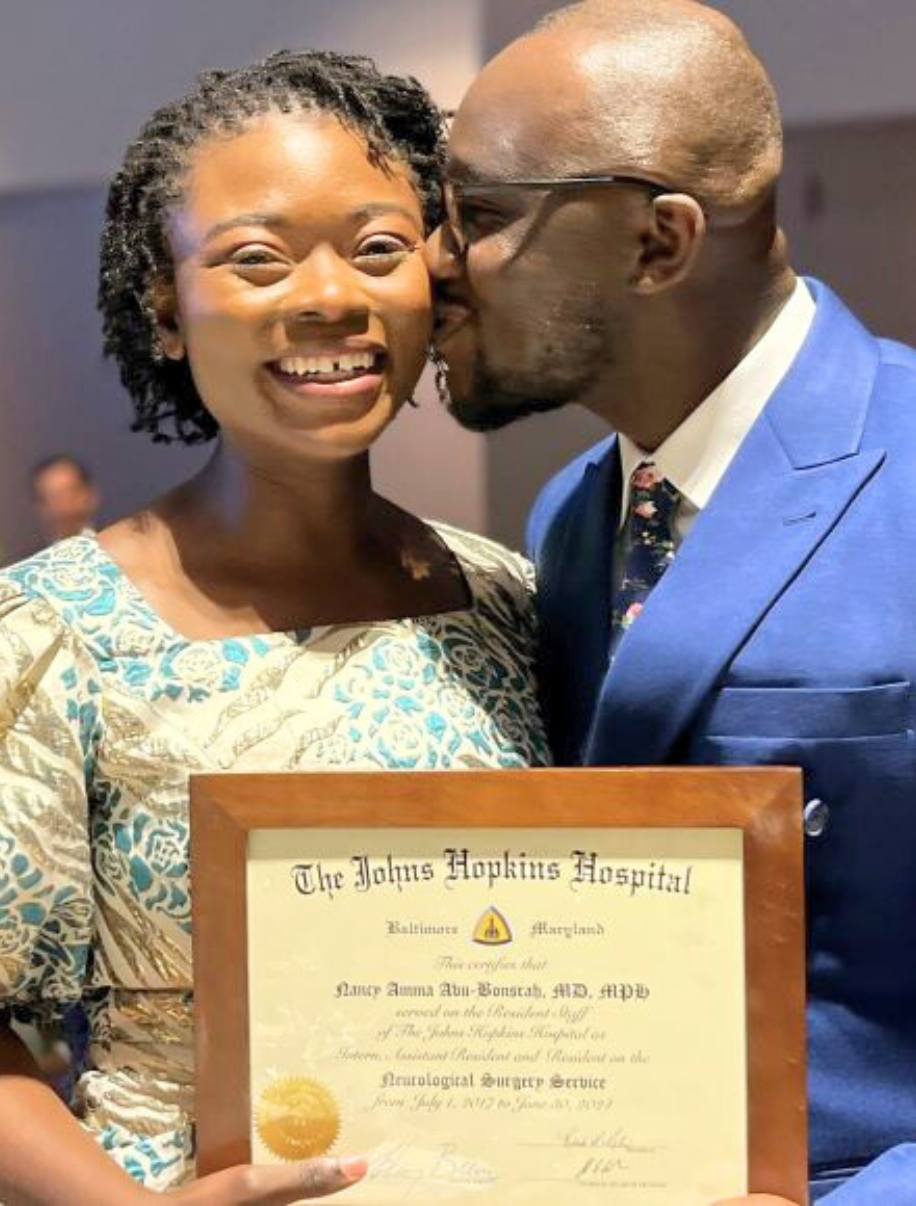Dr. Nancy Abu-Bonsrah: Johns Hopkins' First Black Female Neurosurgeon

Dr. Nancy Abu-Bonsrah has made history as the first Black woman to graduate from Johns Hopkins University’s prestigious neurosurgery residency program. This achievement was announced in June 2024, and is not only a personal triumph for Dr. Abu-Bonsrah but also a significant milestone for the medical field. This incredible moment for Dr. Abu-Bonsrah represents a great opportunity to create more representation within the upper echelons of the medical sector.
On her path to becoming the first Black woman to matriculate through one of the most prestigious neurological programs in the world, Dr. Abu-Bonsrah spent the span of 12 years, dedicating herself to becoming a neurosurgeon. Born in Ghana, she moved to Maryland in the United States at the age of 15.
Mount St. Mary's To Johns Hopkins University
In Maryland, she immersed herself in her education, where she attended Mount St. Mary's University, studying chemistry and biochemistry. Then, she went on to John Hopkins University in pursuit of her medical degree. After medical school, the residency program is the next step. The training includes an intensive, fast-paced, and hands-on postgraduate program that lasts anywhere from three to seven years, depending on the discipline. For Nancy, that discipline was neurosurgery.
In March, 2017, Abu-Bonsrah announced that the globally-recognized and top-ranked Johns Hopkins neurosurgery residency program accepted her as a resident, ultimately culminating in her being the first Black woman to attend and graduate from their rigorous neurosurgery residency. Renowned for its research, the prestigious program ranks as the No. 2 Medical School by U.S. News & World Report.
The Birthplace Of Modern Neurosurgery
In fact, the Johns Hopkins program is the birthplace of the modern medical discipline of neurological surgery, where Harvey Cushing became the first physician to surgically remove a human brain tumor successfully. This medical triumph essentially invented the field of modern neurosurgery. Before Dr. Abu-Bonsrah attended the residency program, the school had never admitted a Black woman.
What a way to begin the Sabbath! I still haven't processed it yet but this is such an honor and a privilege to join the department at Hopkins to begin this next phase of my career. I'm so fortunate to have the continued support of my husband, family, friends and mentors. Kwabena and I are excited for what's ahead!
– Nancy Abu-bonsrah
Dr. Nancy Abu-Bonsrah Is The First Black Woman To Graduate Johns Hopkins' Neurosurgery Program
Now, in 2024, Dr. Abu-Bonsrah is a proud graduate of the Johns Hopkins Neurological Surgery Residency Program. She made the announcement in June on social media to share the news with family and friends. To help highlight not only the personal accomplishment, but also the historical significance of the moment, Dr. Abu-Bonsrah's alma mater Mount St. Mary's University published an article about her on their school's website. The piece celebrated Dr. Abu-Bonsrah's accomplishments as well as made particular mention of the historical significance of her being the first Black woman to be accepted to and graduate from the prestigious residency program.
12 years @HopkinsMedicine came to an end last weekend, surrounded by family. Surreal that I’m done @HopkinsNsurg! #olderandwiser #latenightreflections pic.twitter.com/SBV2Y0Cmq0
— Nancy Abu-Bonsrah, MD, MPH (@BonsrahNancy) June 21, 2024
While at Johns Hopkins, Dr. Abu-Bonsrah spent 12 years in pursuit of mastering her knowledge in medicine and neurosurgery. She started with her medical degree, then moved on to her Masters in Public Health at Johns Hopkins Bloomberg School of Public Health, and ultimately narrowed her focus to neurosurgery in their residency program. During that time, Dr. Abu-Bonsrah continued to build her passion and interest for neurosurgery, neurotrauma and neurosurgical capacity building not only in Ghana, where she was born, but also in other low-income and middle-income countries.
Johns Hopkins And Beyond
With her graduation from the Johns Hopkins Neurosurgery Residency, Dr. Abu-Bonsrah is poised to continue her trailblazing work at UPMC Williamsport, an acute care hospital in Pennsylvania. Her move to community practice reflects her commitment to applying her expertise in a setting that directly impacts patient care and community health. As Dr. Abu-Bonsrah steps into her new role, her story is sure to inspire future generations of medical professionals, especially those from underrepresented backgrounds. Her achievement not only represents a personal victory but also a step further in the ongoing effort to ensure that excellence in healthcare is accessible to all.
